Introduction — Why Travel Anxiety Is More Common Than You Think
Traveling is meant to be an adventure — a chance to step away from routine and rediscover life’s beauty. Yet, for many people, the idea of boarding a plane, navigating new cities, or facing unpredictable travel delays sparks more panic than excitement. This emotional turbulence is known as travel anxiety and stress, a condition that quietly affects millions worldwide.
According to the World Health Organization (WHO), over 284 million people suffer from anxiety disorders globally, and travel often amplifies those feelings. The Centers for Disease Control and Prevention (CDC) reports that nearly 1 in 3 adults experience heightened stress when traveling internationally — mostly due to fear of flying, security checks, or the loss of control over daily routines.
If you’ve ever sat in an airport gate with sweaty palms or found yourself checking your itinerary every 10 minutes, you’re not alone. The good news? There are proven, practical ways to overcome travel anxiety and enjoy your journeys again — calmly, confidently, and consciously.
What Causes Travel Anxiety & Stress
Understanding what triggers anxiety before or during travel is the first step toward healing it. Common causes include:
Fear of Flights, Delays, or Crowds
For many, air travel is the most stressful part of the journey. The confined space, turbulence, or fear of accidents can trigger flight anxiety. Add in delayed schedules, long queues, or crowded airports, and your body starts producing cortisol — the stress hormone — even before takeoff.
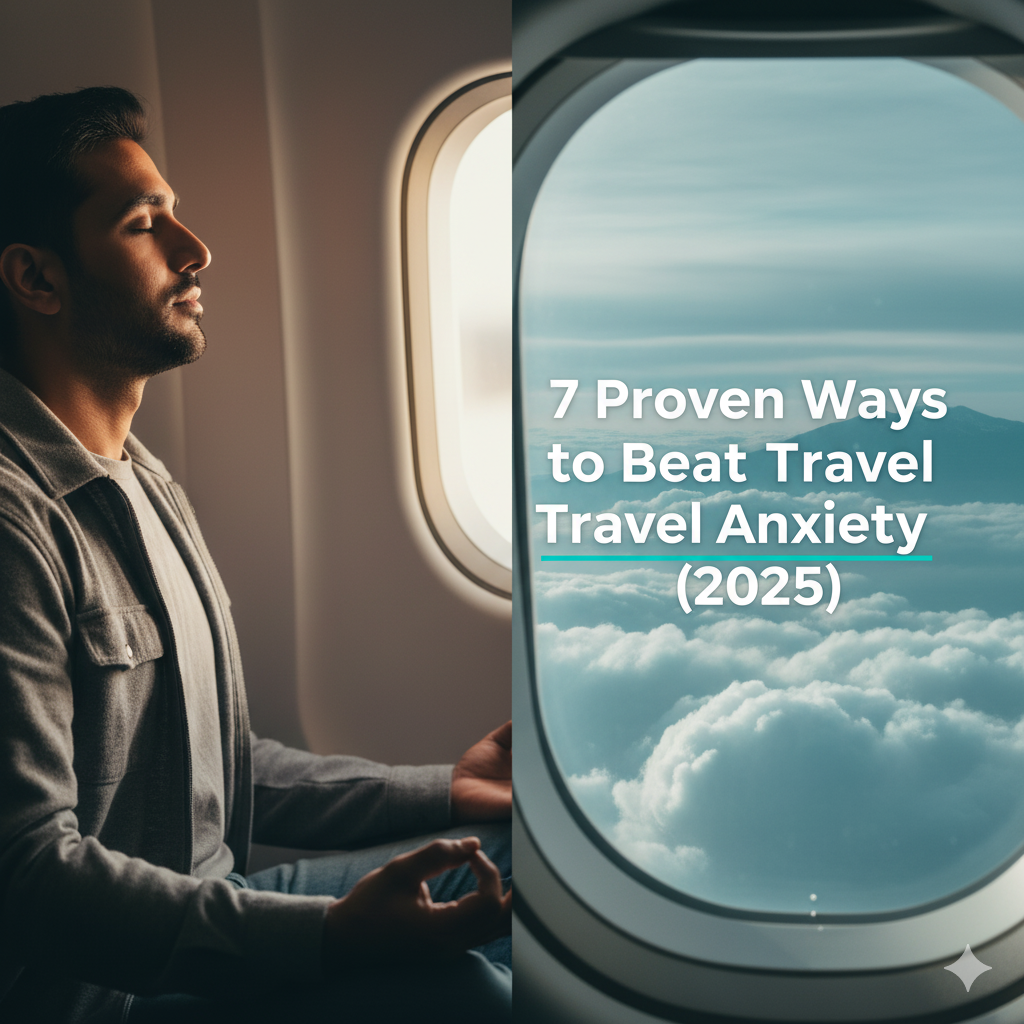
Uncertainty and Over-Planning
Overthinking every detail — from luggage weight to hotel check-ins — creates unnecessary tension. Ironically, the more we try to control everything, the less control we actually feel. Flexibility, not perfection, is the real secret to a smooth trip.
Social Anxiety in New Cultures
Exploring unfamiliar destinations means encountering new languages, customs, and social norms. For those prone to social anxiety, even simple interactions like ordering food or asking for directions can be intimidating.
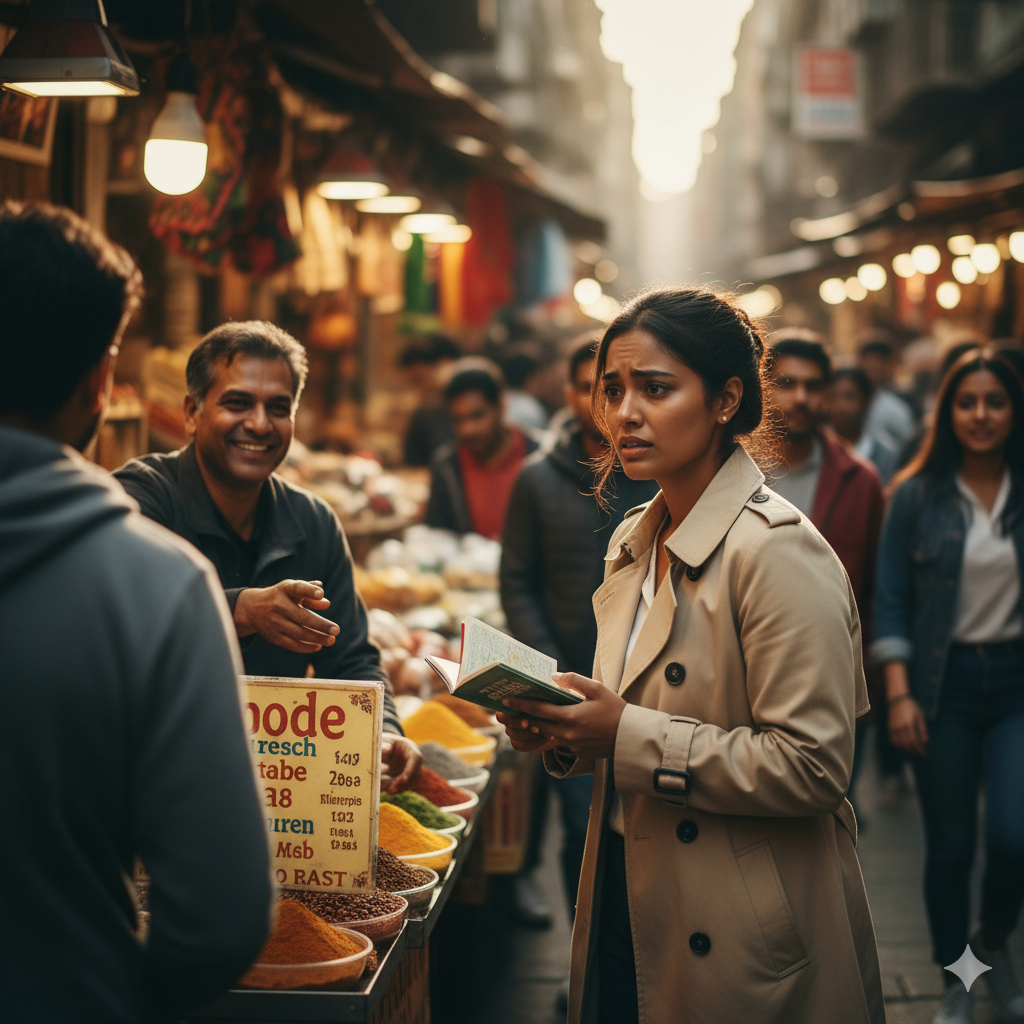
Lack of Control & Safety Concerns
Being away from your comfort zone — and sometimes in unpredictable places — can make travelers feel vulnerable. Concerns about safety, health, or being scammed can intensify travel stress, especially when alone or abroad for the first time.
The Science Behind Travel-Related Anxiety
To understand why our body reacts this way, we need to look inside our biology. When facing unfamiliar environments, your amygdala (the brain’s fear center) activates the fight-or-flight response. This releases adrenaline and cortisol — preparing your body for danger, even when none exists.
According to Harvard Medical School, sudden changes in routine, sleep, or surroundings can confuse your circadian rhythm, intensifying stress responses. That’s why travelers often experience jet lag, irritability, or fatigue, which further fuels anxiety.
Predictability soothes the brain. When we lose it during travel — with changing time zones, weather, and cultures — our nervous system struggles to find balance.

7 Proven Ways to Reduce Stress During Travel
These evidence-based techniques can help you calm your mind, reduce anxiety, and make travel a joy again.
1. Prepare Early Without Over-Planning
Preparation reduces chaos — but over-preparing increases anxiety. Create a checklist for essentials like passports, medication, and insurance, then stop revising it.
✔️ Book accommodations with free cancellation.
✔️ Keep copies of documents digitally.
✔️ Research emergency numbers and hospitals in your destination.
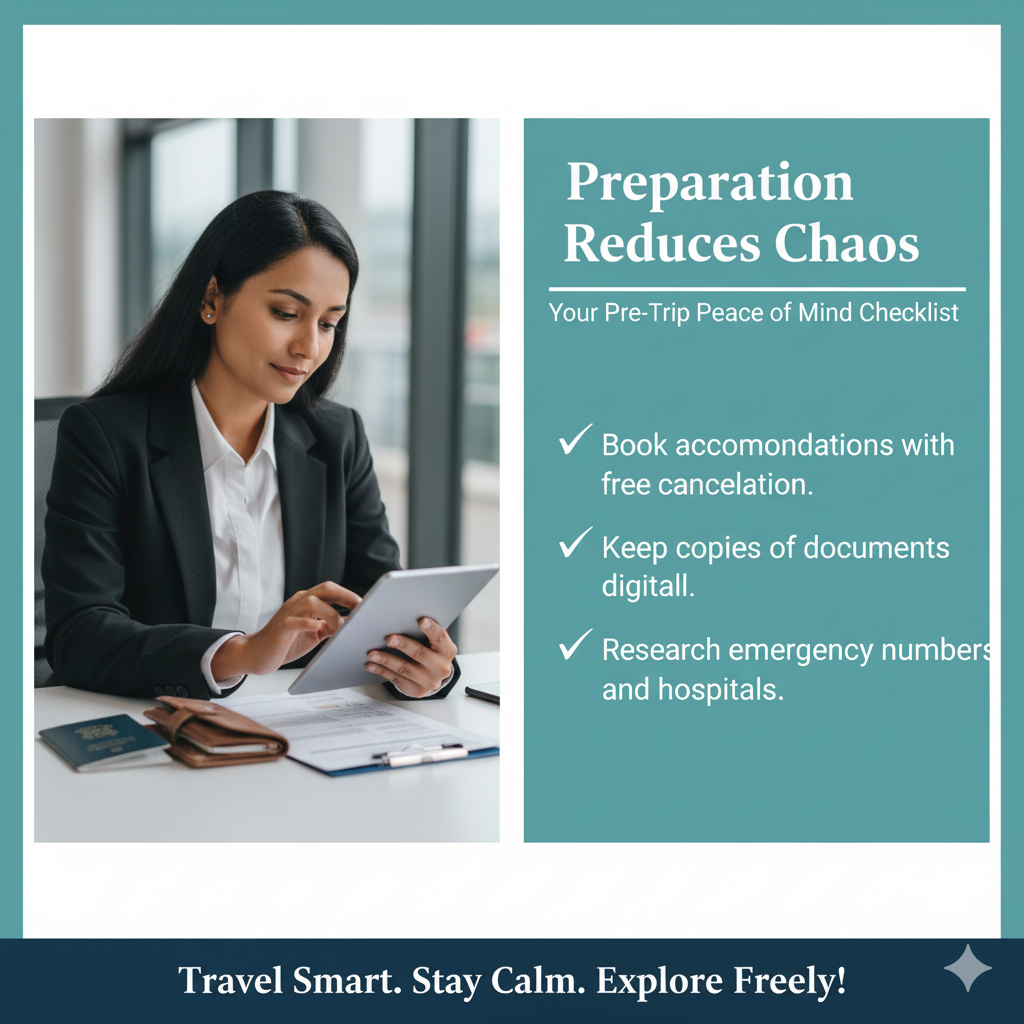
🧘 Focus keyword: travel anxiety and stress can be minimized by balancing preparation with peace.
2. Use Breathing & Grounding Techniques Before Flights
Before boarding, try the 4-7-8 breathing method — inhale for 4 seconds, hold for 7, exhale for 8.
It signals your parasympathetic nervous system to relax.
Pair it with grounding exercises, like noticing five things you see, four you touch, three you hear, two you smell, and one you taste.
📱 Download apps like Calm, Headspace, or Breethe, which offer travel-specific anxiety meditations.
(Source: https://www.calm.com)
3. Choose Mindful Accommodation (Eco-Stays or Quiet Lodges)
A peaceful stay equals a peaceful mind. Look for eco-lodges or nature-based accommodations.
Studies show natural environments reduce stress hormones by up to 16%.
Platforms like EcoHotels.com and BookDifferent.com specialize in sustainable, low-impact stays.
(Source: ecohotels)
Related Post: Top Eco Travel Desinations asia
4. Limit Social Media Scrolling
Comparing your trip with others’ Instagram-perfect moments can ruin your mood. Studies from APA (American Psychological Association) link constant scrolling to anxiety spikes of up to 20%.
Try “digital detox” hours where you disconnect from screens and reconnect with your surroundings.
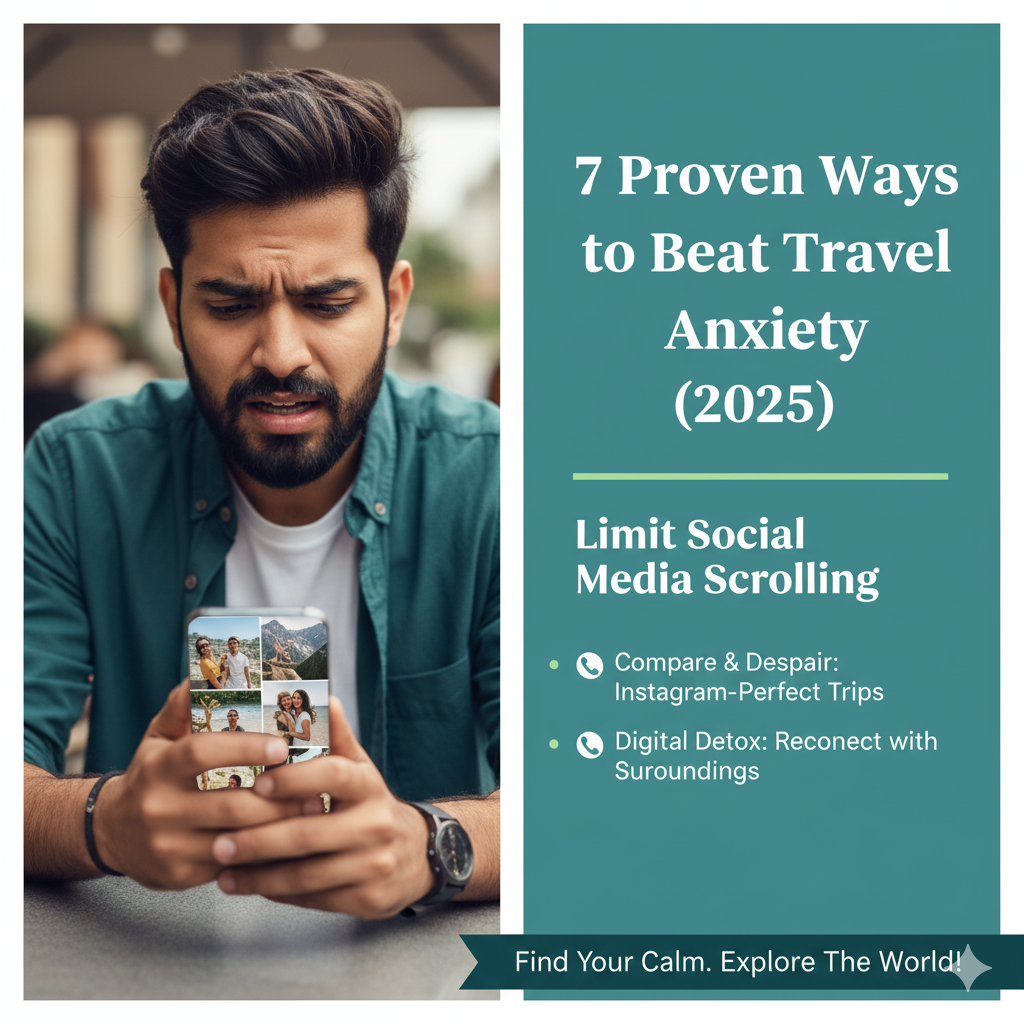
5. Eat Light, Hydrate, and Sleep Well
Your mental health begins with physical balance.
- Avoid caffeine and alcohol before flights.
- Drink water frequently (hydration reduces jet lag).
- Eat fiber-rich, light meals that stabilize blood sugar.
- Aim for at least 7 hours of sleep before long journeys.
Healthy body, calm mind — this is the foundation of overcoming travel anxiety and stress.
6. Bring Comfort Anchors (Journal, Music, Familiar Snacks)
A small comfort object — your favorite playlist, book, or journal — can help you feel grounded.
Carry snacks you enjoy from home; taste and smell are powerful emotional regulators.
Writing a few lines daily about your feelings helps process experiences consciously.
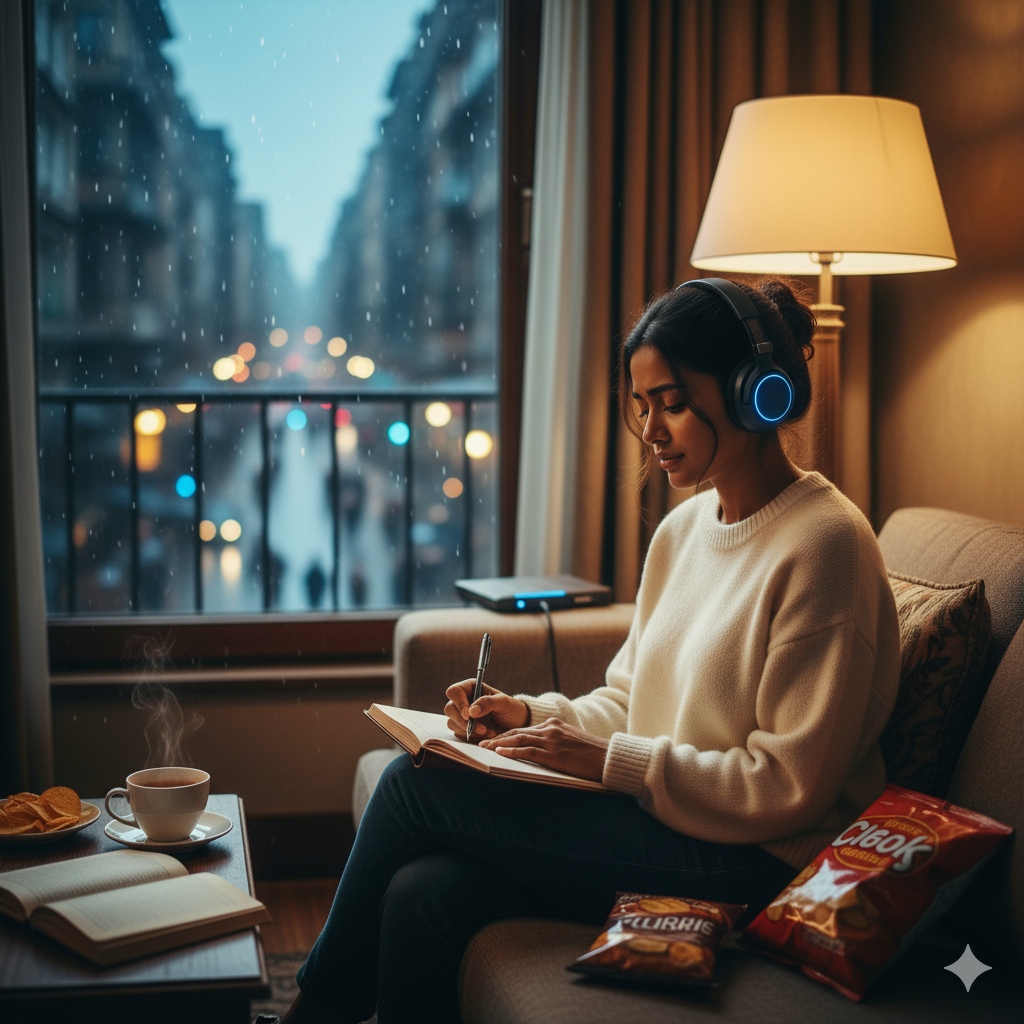
7. Practice Gratitude & Mindfulness Each Day
Mindfulness helps you enjoy the “now” instead of worrying about “what if.”
Start your mornings by listing three things you’re grateful for.
Gratitude rewires the brain’s stress circuits — studies from UC Berkeley’s Greater Good Science Center confirm that gratitude practices lower cortisol by 23%.
Combine this with gentle yoga or meditation to stay centered throughout your journey.
When to Seek Professional Help
Travel anxiety is normal — but if it disrupts your daily life or prevents you from traveling altogether, professional support can make a huge difference.
Seek help if you experience:
- Panic attacks before or during trips
- Nausea, dizziness, or racing heart during travel
- Avoidance of travel despite wanting to go
Many telehealth therapy platforms now specialize in travelers’ mental health:
- BetterHelp (Online therapy sessions worldwide)
- Talkspace (Messaging-based therapy app)
(Source link: better help)
The Role of Sustainable Travel in Mental Well-Being
Sustainable travel isn’t just good for the planet — it’s good for your mind.
“Slow travel” emphasizes staying longer, exploring locally, and engaging deeply with communities rather than rushing through bucket lists.
Eco-friendly destinations like Bali’s Ubud, Portugal’s Azores, or Japan’s Yakushima Island are proven to enhance mental calm due to their focus on balance and nature.

Related post: sustainable-eco-living-guide
FAQs
What is the main cause of travel anxiety?
Fear of uncertainty, safety issues, or flight-related worries are the top causes. Disrupted routines and sleep deprivation also trigger anxiety symptoms.
Can travel improve mental health?
Yes! When done mindfully, travel boosts dopamine and serotonin — the “happiness” chemicals — improving emotional resilience.
How to calm flight anxiety fast?
Try deep breathing, distraction with movies or books, and cognitive grounding (reminding yourself turbulence is normal and safe).
Is travel stress normal?
Absolutely. Even frequent travelers feel stressed before trips — the key is managing it consciously rather than avoiding travel altogether.
Conclusion — Turn Travel Stress Into a Healing Journey
Travel is not meant to be perfect; it’s meant to be meaningful.
Your travel anxiety and stress are not signs of weakness but reminders to slow down and reconnect — with yourself and the world.
Remember:
- Prepare without overthinking.
- Breathe deeply.
- Practice mindfulness.
- Stay hydrated.
- Focus on the joy of discovery.
If this guide helped you, share it with a traveler who deserves a peaceful journey. ✈️💙




Pingback: Traveling with Diabetes: 7 Smart Tips for Safe Trips (2025)